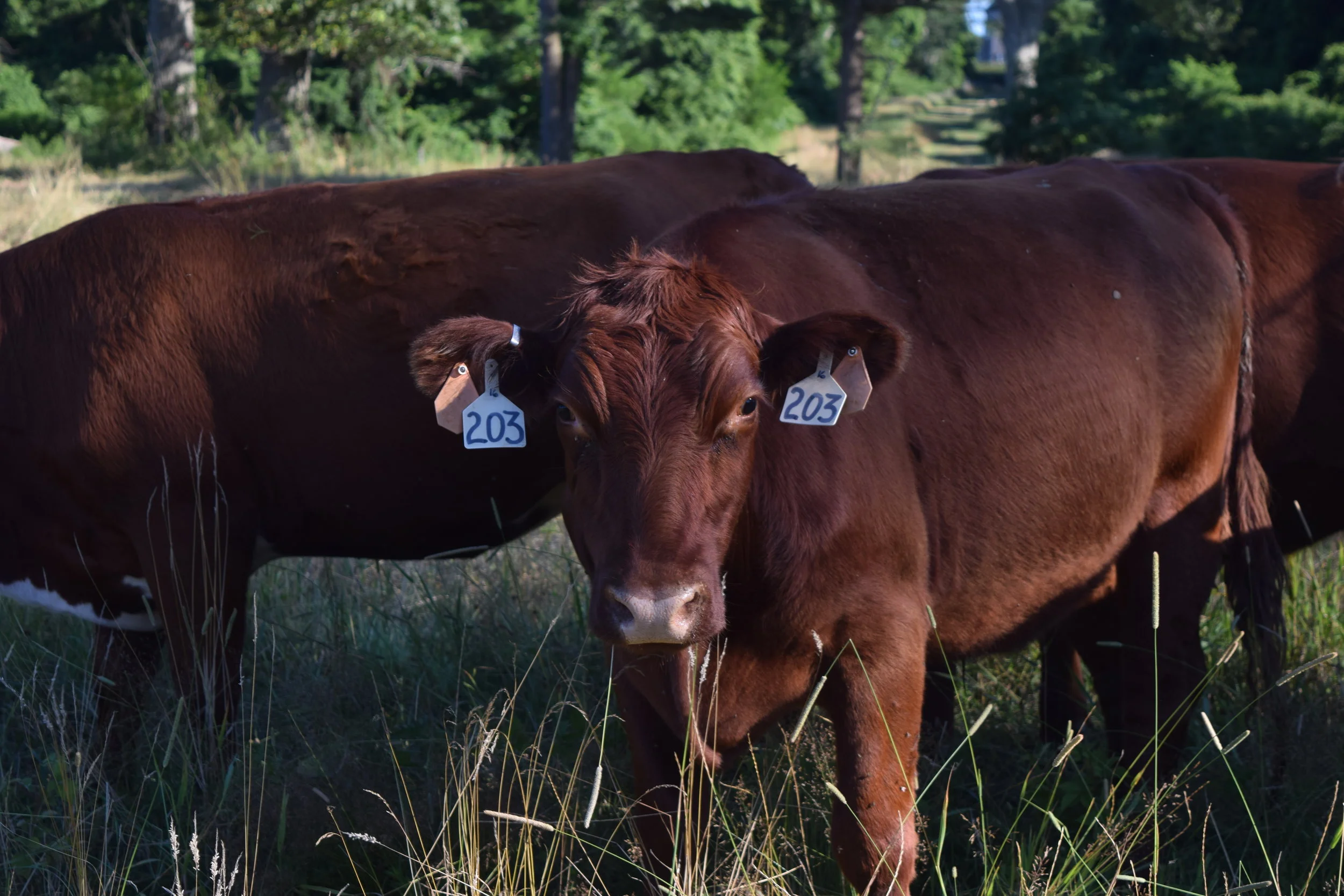Garden Tour: Acabonac Farms
The East End of Long Island was once a rich environment for farmers of all kinds. The soil provided nutrients for crops, the grasses provided sustenance for the cattle and sheep, and the shores provided the quiet hamlets required for clam and scallop populations to flourish. However, since 1950, things have changed and not just on Long Island As more people have discovered the idyllic beauty of the South Fork, land prices increased to such an extent that it didn’t make financial sense to use it for farming. Farmland transitioned from crops to lawns, barns to mansions. We were lucky enough to visit a place this weekend that is working to reverse that cycle, Acabonac Farms. They are generating NEW local agriculture by pasturing animals at Sylvester Manor Educational Farm, working to improve soil health, and creating jobs for their Long Island community.
Some people say “Acabonac” (an American Indian word) means “root,” others say it is "the place where the groundnuts grow." [Groundnuts were prized by East Hampton's earliest settlers both for their own consumption and as feed for their livestock.] Supremely fitting then, that Stephen Skrenta has gone back to the East End’s roots in creating Acabonac Farms.
In short, Acabonac Farms delivers grass-fed, pasture-finished beef direct to you! You can buy different sized boxes—depending on your freezer capacity—to have high-quality pasture raised and finished beef any night of the year. This past weekend, I visited the farm.
Think back…what is the BEST steak you’ve ever eaten? I bet there’s a moment that you can remember, that was pivotal in your eating life. (Mine was circa 2014 at The Mark Restaurant when my husband and I ordered a Porterhouse for two). There is a big difference in nutrition and taste between Acabonac Farms pasture-finished cattle and conventional grain fed cattle. For example, grass-fed beef is higher in CLA—which can help you gain lean muscle and cut fat, especially around your abdominal area. It’s also higher in Omega-3’s, which are vital to your brain function. And did I mention the taste? It melts in your mouth, y’all.
Most cattle spend the majority of their lives at a feedlot, in crowded corrals, eating grains and corn…aka SUGAR, which makes them put on fat…FAST (notice any connections?). Cattle are made to eat grass, so this diet makes them sick, and then they need antibiotics or growth hormones and other nasties to keep them “healthy.” Which in turn, then get passed on to you. You’re welcome. (See Michael Pollen: “You are what you eat, but you are also what you eat eats).
When I visited Acabonac Farms, I got to walk in the pastures where the animals were grazing freely and taking one bite of each of their favorite grasses and clovers. Stephen even let us help move the leader group of cattle from one grazing area to another. The cattle are moved from a one-third acre grazing section to another.
Even though I hadn’t been to Acabonac Farms before like I had been to Iacono, I felt similar nostalgia and the familiar pull of home. My family’s roots are deep on the East End of Long Island and I feel relief and an enormous sense of pride knowing that there are a few people fighting to return this beautiful part of the world to what it once was. Unlike Iacono, Acabonac Farms is brand new—they hosted their first cattle on Long Island this spring, but Stephen and his team are working relentlessly with local partners to create a new kind of family farm and actually revive an American Community. I highly encourage you to find a local purveyor for some of your groceries and get to know them. Find a way to support the few family farms left in America and encourage this way of life with your $$. Get to know the family that works there—building relationships is one of the most human things we can do any helps us feel connected, which in turn helps us feel loved. In supporting family farms, are keeping alive a family that believes in what they do, and you’re also contributing to your own health and wellness.
Food that you put on your plate is nourishing, but it is my personal belief that human connection is the greatest form of nourishment. You can eat all the kale (or grass-fed beef) in the world, but without relationships, you won’t be sustained. I know my family will be supporting Acabonac Farms in the future, and I hope we get to do so for many generations—go out and find people who are doing this work in your local community. If you're interested in finding out more about Acabonac Farms, click here!


